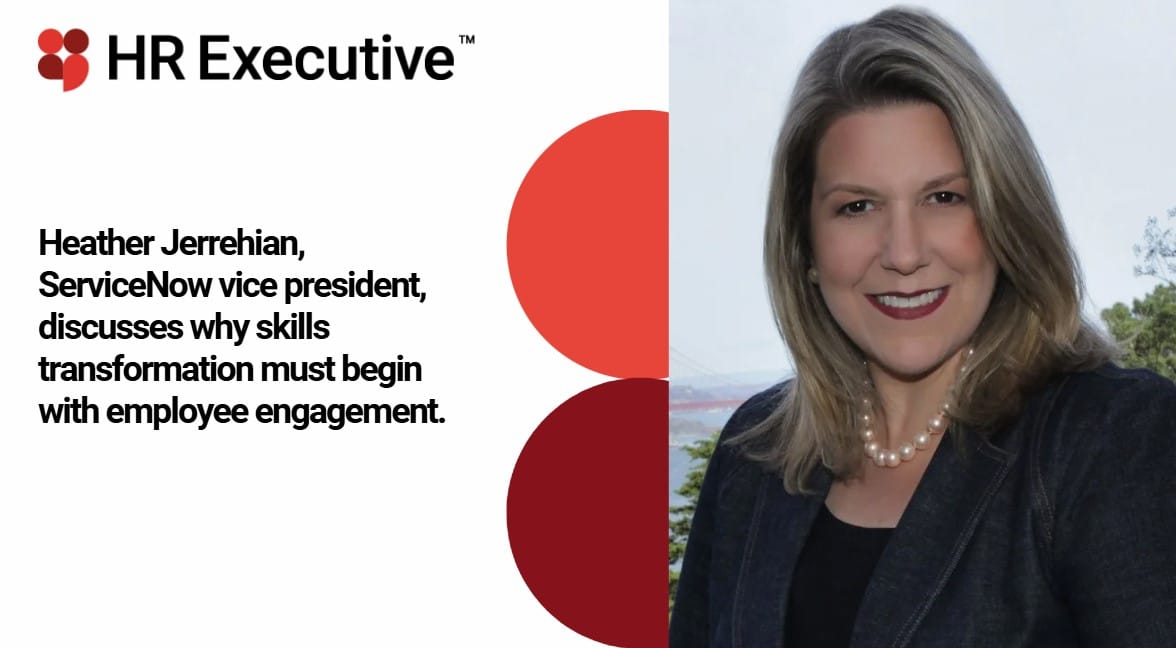To uncover hidden talent within their workforce, employers need a way for employees to share their lesser-known skills with managers and HR leaders. However, many organizations face challenges with employee engagement in their skills transformation, which can make it difficult to build comprehensive skills profiles. If employees hesitate to share information, companies may lack the visibility needed to develop skills roadmaps and adapt to change effectively.
Heather Jerrehian, vice president of product management for employee workflows at business automation platform ServiceNow, says this lack of transparency about skills is a crucial issue for her clients. “What’s critical about employees is that you need to know about them,” she explains. “I like to say that the profile is the birthplace of skills because that’s where all that information emanates from.”
Nearly all of her clients, she adds, are also focused on talent visibility within their organizations. “With the pace of change and the impacts of AI, we all need that business agility,” Jerrehian says.
This visibility is essential for business leaders who want to leverage AI’s productivity potential. For example, ServiceNow estimates that, in the next few years, AI could help a help desk service agent save 10.5 hours each week—25% of a standard 40-hour work week. To capitalize on this productivity boost, managers and HR leaders need a clear understanding of how to best redeploy help desk agents, which requires insights into their additional skills.
This also underscores the ROI of engaging employees as they reskill and upskill to meet shifting organizational needs. Jerrehian shares another example to illustrate this. ServiceNow analyzed the role of an account management specialist, which researchers expect to decline in demand, whereas technical project managers are projected to remain in high demand.
Despite one being non-technical and the other technical, there is an 85% skills match between the two. Within this overlap, 29% of the skills align perfectly, while another 51% includes human skills that can be learned on the job.
While such data brings significant potential to the organization, achieving a shift to a skills-based arrangement requires employee buy-in. “Employees want to know what’s in it for them because they don’t want to fill out one more profile,” Jerrehian notes. “It’s 100% a mindset shift. This is where change management is so important.”
Jerrehian spoke with HR Executive Tech Editor Jill Barth at HR Tech for a video interview about how employee engagement is essential for skills-based work, artificial intelligence, ServiceNow’s Employee Experience Trends report and more.
The call for speakers for the 2025 HR Tech conference is open until Dec. 6. HR Executive invites industry experts and senior HR leaders to propose high-impact presentations that offer valuable insights, actionable strategies and meaningful takeaways to empower HR professionals and drive organizational success. Submit your proposal today.
Credit: Source link





![What I Learned [+ Tools to Try] What I Learned [+ Tools to Try]](https://www.hubspot.com/hubfs/Untitled%20design%20-%202024-11-12T143944.345.png)





